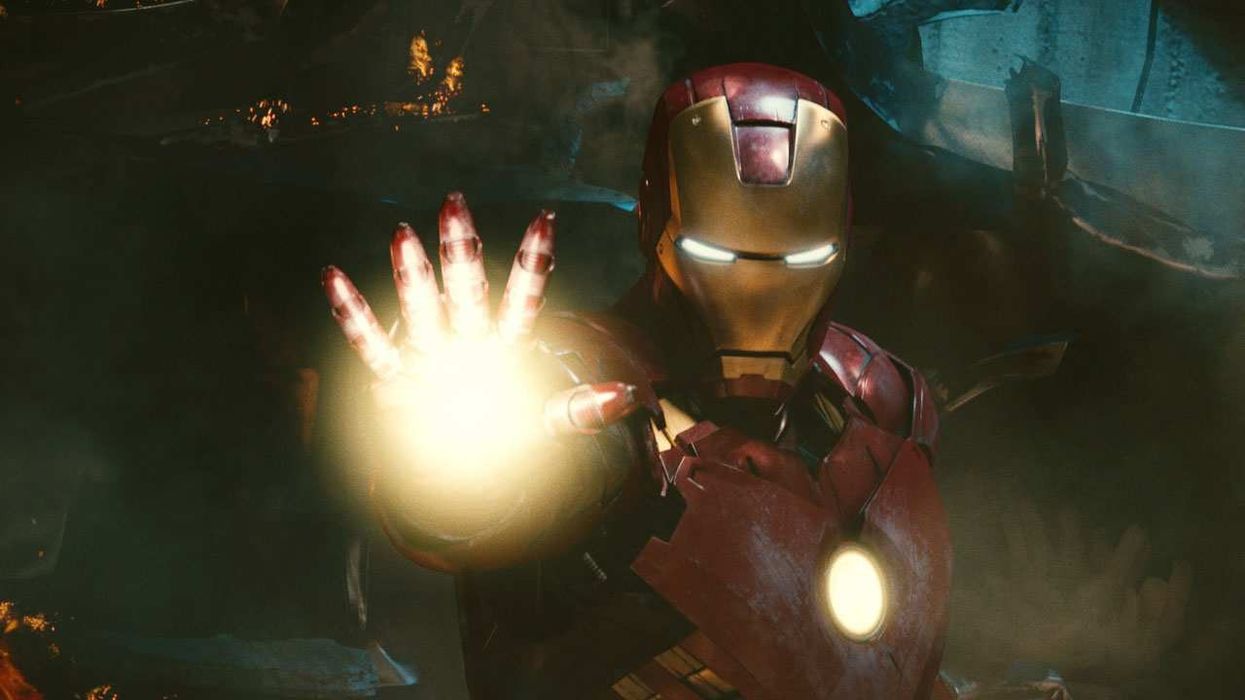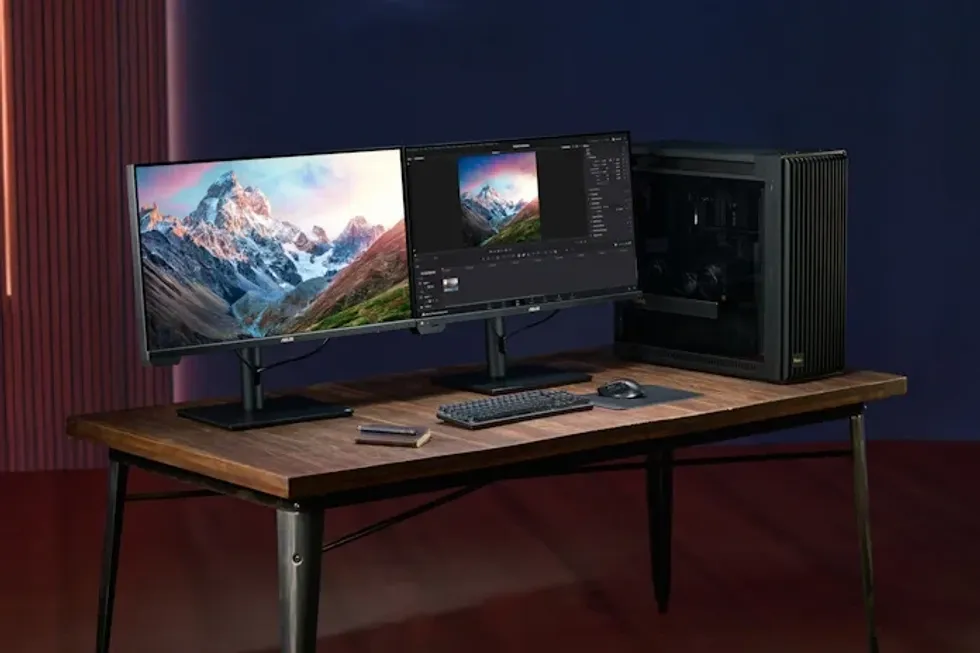Be an Actor and Fail Hard: Jon Favreau's 6 Secrets to Being a Great Director
Jon Favreau thinks every director should be an actor first. Here's why.

It’s hard to pin down Jon Favreau—not only because of his hyphenate career as writer, producer, actor, and director, but also because of the broad scope of his material. Swingers. Iron Man. Elf. The Jungle Book. Each one is beloved in its own right, but you wouldn’t necessarily associate these films with each other, and they are only a fraction of his impressive output. The average filmgoer (read: me, moments before I got to hear him speak at the 2017 Tribeca Film Festival) might not even realize that they all come from the same mind.
"Acting is the closest thing you’ll get to an apprenticeship for directing."
At 50, Favreau has proven himself a remarkably malleable, confident artist, capable of taking on any project with gusto. Even more important—all while transcending genres, leaping between indie hits and superhero blockbusters—he has developed a reputation as one of today’s best actor’s directors, with a knack for adapting stories. Next up, he’s directing a sequel to smash-hit Jungle Book and a much-anticipated Lion King reboot.
What makes this guy such an effective director? Humility. Empathy. Zeal. The courage to improvise. You can hear it in the way he tells his own story, in his advice for all of us.

1. Embrace Your Inner Improv
Favreau started out nerdy. “That was before nerdy was cool,” he took care to remind the Tribeca audience. So he found ways to compensate. “I was the class clown who loved theater. I loved performing, and the applause that came with it. And I really loved drawing.”
He started out putting on shows at school—not always teacher-sanctioned—and by drawing with his father, often on placemats in restaurants. (He now does that with his own kids.) At first, he thought that his artistic urges would take a backseat to something so-called "respectable," but at age 22, after a brief stint at Bear Stearns on Wall Street, he dropped out to try comedy.
"I moved from New York to Chicago, and that changed everything," he recalled. He knew Chicago was the center of American improv, so he dove in headfirst."“Because it was so DIY, I learned about storytelling, writing, editing, acting."
"I don’t judge my ideas—they’re good and bad."
It also taught him much-needed discipline. "When you’re onstage," he explained, "you gotta stick to certain set of rules, just to make sure the show is entertaining the audience. It’s a skill. I fell in love with the freedom. You go onstage with almost nothing, so it’s a very open, freeing creative process."
2. Don’t Underestimate Practice
The writing was the hardest part. "I didn’t start out as a writer," Favreau confessed, "but writing was an essential part of the process, so I dove into that, too."
The pace was intense; even so, he learned to love it. "We had to write sketch shows every week," he continued, "but because they were short skits, it wasn’t loaded with pressure. We had a sense of freedom; I wasn’t judging myself too harshly and therefore I got to get better."
His years on the stage also gave him a sense of how to tell stories. "It taught me how to appreciate human nature," he declared. "I learned to read character—how people tick, and I got firsthand experience of the anxiety and fear that actors deal with. You’re vulnerable, you wonder how you look, how you’re coming across. I find that stuff very moving."
Slowly but surely, Favreau was finding his voice. Ideas multiplied, but effective execution took years of practice.
Again, his approach was improvisational. "When I get an idea, I get one of those black-and-white composition notebooks and I start scribbling. I like that you can’t take the pages out. I don’t judge my ideas—they’re good and bad. I try to start writing fast, because sometimes an idea gets lost if I don’t write it down. I have a lot of unfinished scripts."
For close to five years, Favreau remained in the improv universe, honing his acting chops and exploring comedy timing. Eventually, he landed a film role in the sleeper hit Rudy (1993), and his horizons expanded: he moved to LA, acted in TV and film, and got his first break as actor-screenwriter with Swingers (1996), a comedy-drama about single, unemployed actors. By 2001, he was a writer-director.

3. Directors Should Be Actors First
Today, Favreau views his lengthy acting career as one big directing internship. "Acting is the closest thing you’ll get to an apprenticeship for directing," he said, “because you’re actually on set watching the director do what they do. When you go to school for directing, you rarely have the luxury of actually shadowing and watching someone else who’s doing it well. But because I was on so many sets, I got to learn whose style I liked."
"You begin by emulating the styles you like," he continued, "and then develop your own. It’s like being a musician: imitation is always the first step of mastery. Whenever I didn’t know what to do on set, I always tried to channel directors I’d worked with."
Because of own experience, Favreau harbors a deep appreciation of actors. His years spent on stage and in front of the camera taught him empathy and a deep respect for the craft.
"Usually everybody has a way they like to work," he said. "So I make it about them, never me. I want people to like what we’re doing—to feel like their time and work is being respected."
For him, respect begins with casting. It’s all about human nature: he takes the time to look past the surface.
"When I cast, what I'm looking for is intelligence. All the other things are skills."
"When I cast," he explained, "what I’m looking for is intelligence—how sharp somebody is. If somebody is smart, they’ll understand the scene." A smart actor, in other words, will have the same respect for human nature that he does. "It’s very difficult to help someone take apart a script. They have to have their own innate sense of how people are, a sense of who they are. For me, that’s what translates the most to film: that charisma, that sharpness. All the other things are skills."
Once shooting begins, Favreau gets good results because he gives his actors space—i.e., room to improvise in a particular scene—while he keeps his focus on the way individual scenes will connect once they’re all strung together. This is particularly important because of the non-linear nature of most film shoots. A good director, therefore, has to make sure that his or her actors keep the bigger picture in mind.
"I remind actors of the emotions they’ve shown in an earlier scene, and where those emotions have to be at the current scene’s close," he said. "Usually, if you give smart people parameters, they’ll fill in the blanks, smooth the edges."
Favreau's advice for young directors? "They should think of themselves as a film coach to an amazing team," he said. "Everybody is awesome and different, and you gotta figure out the right lineup to get the best out of everybody—who’s great out of the box, who gets better with more takes, who runs out of gas."

4. Hone Your Individual Writing Process
Favreau's directing takes many forms—his own original scripts, other people’s material, adaptations, and sequels—but his favorites are personal writing projects. As with his onstage performances, the room for spontaneity translates to good ideas. "I think the purest form is when I just do it," he said. "It’s freeing."
Favreau spends a few weeks to a month developing an idea. Once the outlining is done, he takes another stab. And another. Then, once his first act is well-written, the rest of the script begins to write itself. "If you wrote it well, the second half [of your screenplay] will be somewhat inevitable," he said.
When helming someone else’s script, however, the process shifts. "There’s much more craft to rewriting," he admitted. "More heady discussion, outlining, and whiteboarding."
So how does his free-form, stream-of-consciousness approach fit in with adaptations? Favreau compares adapting a well-known story to a live music performance. “If you see The Rolling Stones live, you have expectations,” he said. “You think of Jumpin’ Jack Flash a certain way based on how it sounds on the record. There’s that same pressure with beloved stories, especially if you experienced them on an emotional level at a young age.”
"Actors, writers, directors—really, they’re all filmmakers."
As he sees it, his job is to find the sweet spot between spontaneity and honoring the classics. He starts by making a list of the seminal moments and images from a particular story that had the biggest impression on him. "For example," he offered, "in the Jungle Book, in the original Disney version, I remembered Mowgli and the Snake’s eyes, Baloo going down the river."
As long as those iconic moments are preserved and recreated in live action, Favreau feels free to improvise—"within reason."

5. Collaborate Obsessively
In Favreau’s mind, filmmaking is a team effort. "Actors, writers, directors—really, they’re all filmmakers," he explained. "All paths lead to calling the shots on a story. I like movies that feel like people coming together to solve something. The trick is we all need each other. We can do a lot collectively, and art helps us make that connection."
As proof of his theory, he cited Iron Man. The film is seminal—the first film in the Marvel Cinematic Universe, which now dominates the industry—and yet Favreau is humble enough to share the credit. "Sure, when you’re directing, if you’re gonna do your best work, you have to be obsessed," he said. "You have to live, breathe, sleep, dream the film. And I did. But the truth is, that film succeeded because everyone cared."
With Iron Man, Favreau pulled out all the stops.
First came the cast, starting with Robert Downey Jr. who attracted other talented actors, including Gywneth Paltrow and Jeff Bridges. Then came improvisation, of which Downey Jr. and Favreau are both huge proponents. Then came CGI: the results were impressive, in part, because Favreau used his drawing skills to communicate with effects artists and animators. And then came, of course, Favreau’s trademark mix of honoring classic moments and re-imagining others.
For example: the original Iron Man comic had a crucial scene set in Vietnam, in the middle of a warzone. Instead, Favreau set it in the Middle East, to parallel more current events.
The result? The film still holds up as one of the best superhero movies of all time.

6. Ride Your Failures
Not every Favreau film has been as successful as Iron Man, and our much-lauded director is quick to admit this. In fact, he insists it’s a good thing. "In my experience, you learn more from failures than you do from success," he said.
Favreau was lucky to have a cold bucket of water early on. Rudy, his first film as an actor, bombed when it was first released. "Everyone was depressed," he recalled, "but as an actor, I didn’t completely understand why. I was so proud of our effort. But I soon realized: a film is an investment for people, so that’s why the business part of it is very important."
He also learned that what may first seem like failure may not turn out to be one in the long run. Despite its poor initial reception, Rudy is now cited as one of the best sports movies of the past 25 years.
"People don’t understand the rhythm of failure. They don’t realize that things may turn out well in the end."
The same trajectory was true of Swingers, his first film as a screenwriter-actor. Today, Swingers is considered a hit, but as the project developed, it was far from smooth sailing. The first hitch came when Favreau tried pitching his script. He held table reads with actors, but no buyers were biting. He decided to make the movie anyway. Then came the next hurdle: Swingers wasn’t getting into any festivals. So he hosted his own cast and crew screening, got some buzz, and then Miramax decided to buy it.
Even so, he wasn’t out of the woods: the film did poorly in theaters. "Swingers just didn’t translate," said Favreau. "It sputtered out at multiplexes." Eventually, however, it found success on video. "It was ultimately a win for us," he said. "But at the time, we sure felt like failures."
"People don’t understand the rhythm of failure," he mused. "They don’t realize that things may turn out well in the end. Half the success is riding it—not defining yourself one way or the other."

The fact is, a prolific filmmaker like Favreau is destined to have his share of flops. But despite all his experience, the losses do hurt him.
"I may talk a good game," he confessed, "but I’m not prepared for disasters like Cowboys and Aliens (2011). That entire summer, every time I was feeling bummed out, I would take a swim with the kids. And by the end of the summer I was so tan."
Channeling his inner actor, Favreau let his vulnerability show. "The truth is, I think all my films are gonna be great. I pour myself into them, so I'm completely flummoxed when one doesn’t live up to what I hoped it would be."
Favreau argues that it’s easier for an actor to judge a movie than a director.
Why is box office success so hard to predict? Favreau argues that it’s easier for an actor to judge a movie than a director. In his experience, an actor can usually get a sense of how things are going through observation, but directors are much more in the dark. "You’re pitching it, prepping it, shooting it, cutting it, promoting it," he said. "But by the time it comes out, you’ve just run full speed down this one railroad track for what feels like forever, so when you suddenly hit a wall, it’s very disconcerting. And overwhelming."
Nevertheless, Favreau sees failure as a necessity, especially in the film industry. "Film is a very hyper-real world to be involved in," he explained. "You’re dealing with so many people, reactions, emotions.... and it’s all so very public. Failure isn’t fun, but success is equally jarring. I contend that you don’t learn from success. In fact, I think you need a healthy amount of failure to grow properly. I wouldn’t have developed into who I am today if I hadn’t lived through Zathura, Cowboys and Aliens."
"As you get older, Favreau continued, "you start to see that life is a series of cycles. It all depends where you throw the comma. There are bad parts, yes; but ultimately I think there’s tremendous hope. There’s always something good growing when something else is going bad. You just have to see the full picture.
"Optimism is not a result," he concluded. "It’s a choice. And self-sacrifice for the whole seems to be the hero’s journey."
Spoken like a true superhero.
For more, see our complete coverage of the 2017 Tribeca Film Festival.















